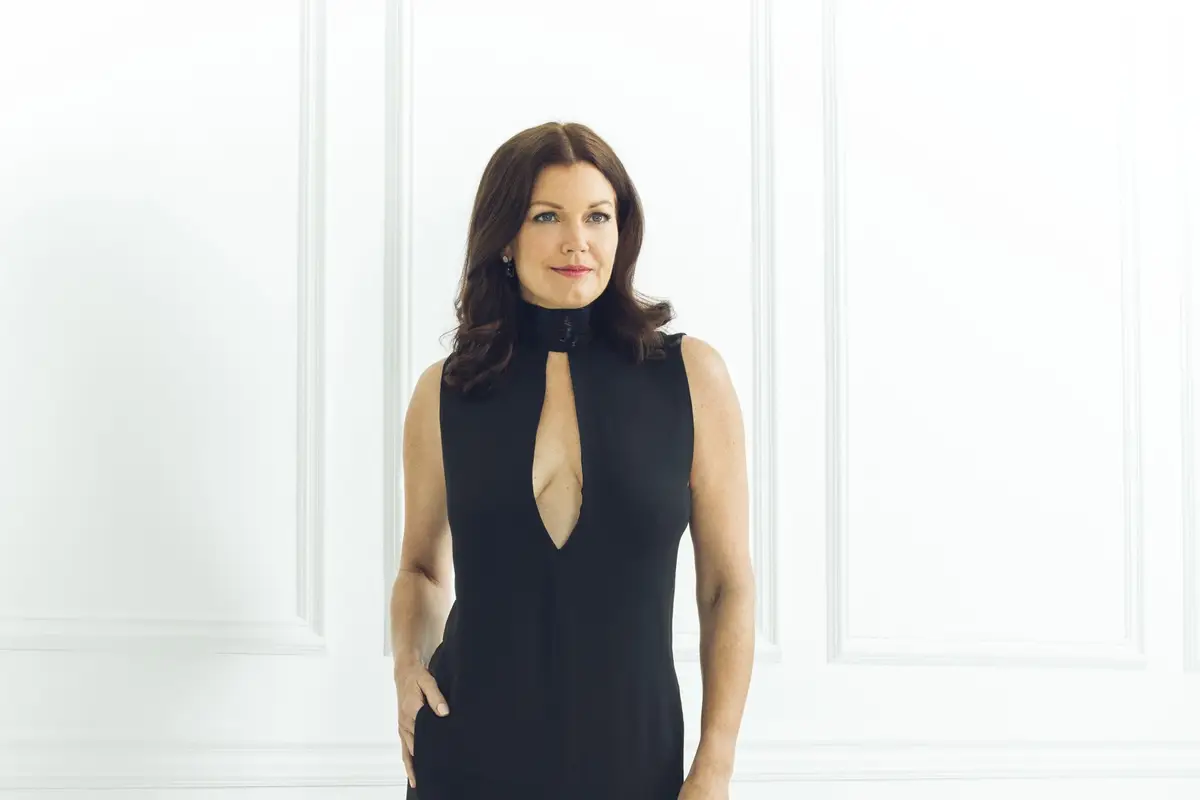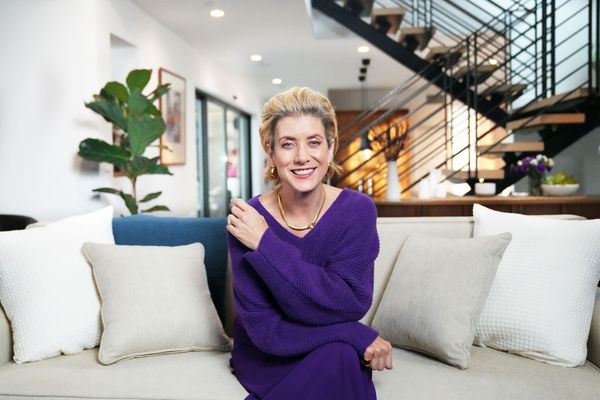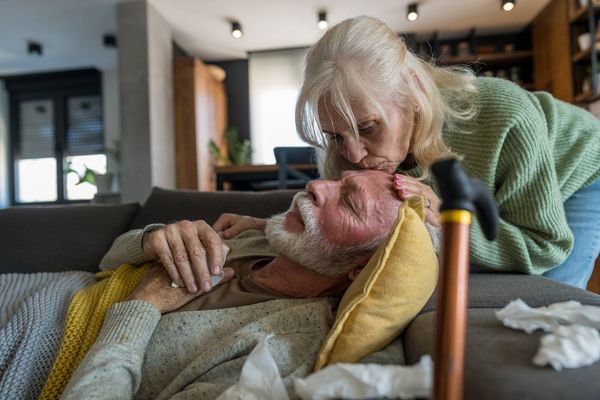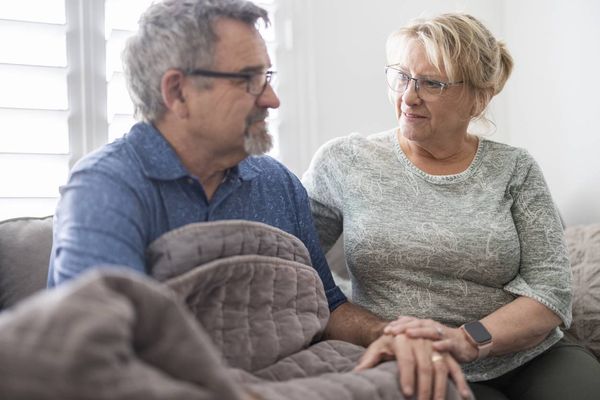November is National Family Caregivers Month.
Award-winning actress Bellamy Young is known for playing strong characters on TV shows like “The Other Black Girl” and “Scandal” (hello, Ms. President!).
These days she’s also using the strength of her voice and personal experience to bring awareness to a serious condition called hepatic encephalopathy (HE) that can cause brain damage in people with liver problems. Young’s father was diagnosed with overt HE when she was a teenager.
“My dad’s journey with overt hepatic encephalopathy started with a cirrhosis diagnosis. That diagnosis came out of the fact that he was a big drinker,” she said. “The diagnosis came with a lot of shame and stigma — our family sort of took it on the chin and went home and silently agreed never to talk about it again.”
HE develops when your liver fails to filter toxins in your blood. The toxins then build up and damage the brain which can cause memory loss, slurred speech, coma and even death.
Young and her family had no idea that her father’s liver disease could cause HE and affect his brain. “We weren’t told much about anything we could do about it, and we definitely weren’t told what might be down the road for us or what to be on the lookout for,” Young said. Symptoms of HE can include involuntary movements, balance issues, a musty odor and dramatic shifts in personality — all things that happened to Young’s father. “When your brain is muddied by the toxins that are building up in your bloodstream and in your body, you turn into a different person,” she said.
Anyone with liver disease can develop HE, but you can stop it from causing permanent brain damage if you catch it early — something Young wishes she knew back then and why she’s so passionate about spreading awareness about HE today. We talked to Young about her experience and how she’s using social media to help give HE caregivers a voice.
This interview has been lightly edited for clarity and length.
HealthyWomen: Looking back, what signs of hepatic encephalopathy (HE) did you notice in your father?
Bellamy Young: We were living with this diagnosis [cirrhosis of the liver] that we thought was an end point, but my dad kept changing. I was a teenager and I was my worst self, and I just thought he’d been drinking during the day so that’s why he didn’t pick me up from school or that’s why he started having a funny smell. But then one night, he couldn’t find his way home from work — the building he worked at for 23 years — and that’s what got us back to the doctor because we thought something else entirely must be going on.
That’s when they said it’s overt hepatic encephalopathy and it’s the progression of his liver disease. My mom and I were like, “What?” Because we had no idea this was even a possibility. We felt terrible, like we could have helped him — we could have gotten him back sooner if we’d known that we were noticing changes. Options were very limited back then. We didn’t have much time with him after the diagnosis.
HealthyWomen: What inspired you to be open about your experience today and want to increase awareness about HE?
Bellamy Young: Learning that so much has changed. I had no idea because this isn’t something I hear talked about. I had no idea that treatment options have progressed and that communities are popping up — and once I found that out I was just so honored to be participating in the conversation.
Today, I’m so grateful to get to talk about it because I never want anyone else to feel ashamed or alone, and there’s so much more to know and there’s so much information and so many more options. And I’ve found talking about it — people are so relieved to have these conversations because they’ve felt so isolated and scared and just when we come together as a community and help each other — first and foremost — knowing we are not alone and then also sharing our knowledge and sharing and strategizing about how to talk with doctors and or how to care for our loved ones has been such a blessing.
HealthyWomen: Tell us a little bit about the HE caregiver conversations you’ll be sharing on your Instagram.
Bellamy Young: It’s simply sharing stories and the act of being seen and heard. The act of learning and coming together has been so powerful because — especially when you're trying to care for someone you love — you so often forget to care about yourself too, and your well runs dry and there’s nothing left to give. And so, reminding ourselves that our greatest place of strength comes from a full well — or as close to as full well as we can get — and to ask for help when we need it and give help when we have the strength to without waiting to be asked.
HealthyWomen: What advice do you have or what you have learned that you want to share with HE caregivers?
Bellamy Young: A great thing to do is to make sure you know what to look for. If you know that someone you love has been diagnosed with any sort of liver disease, just know that it's a journey — you're not at your destination. Educate yourself about what other symptoms might be, what progression can look like, what might be on your horizon. HE might not happen, but just knowing what to look for will help you catch any changes as soon as they're happening.
And then I really think the other pillar is community because you can't do it alone. We always think we have to do it alone, especially if it's our parents or our spouse or our child — we feel such a responsibility that’s only ours, but it takes a village to keep someone going and it also takes help to keep your own engine full of fuel. I've often had this conversation with myself — I have to think about self-care like it’s not icing on the cake — it’s a firm necessity.
You can follow Bellamy Young @bellamyyoung.





